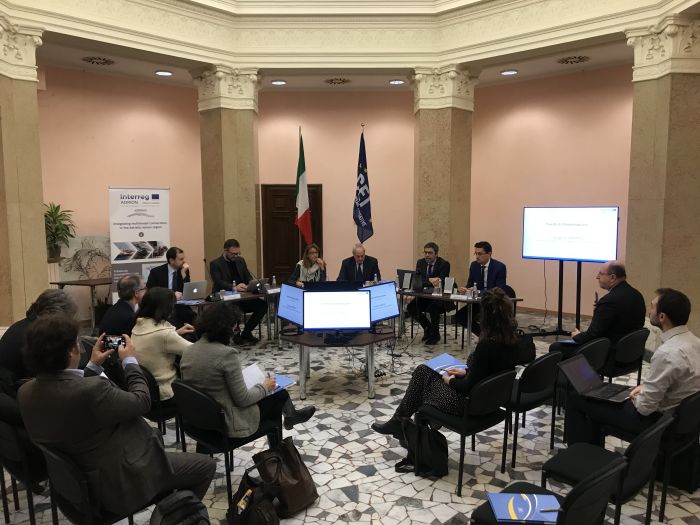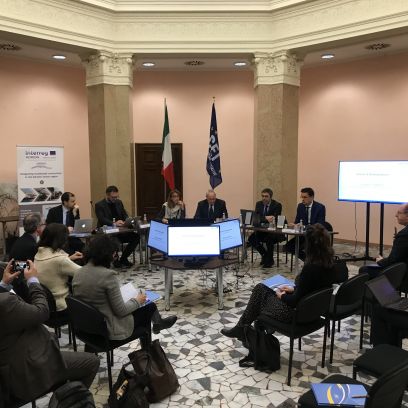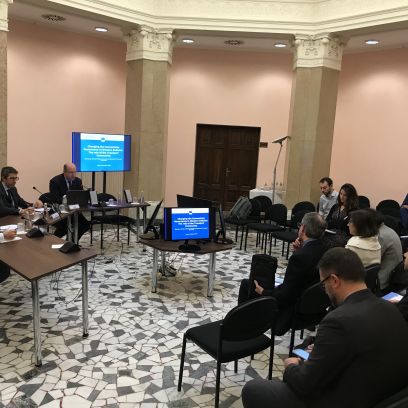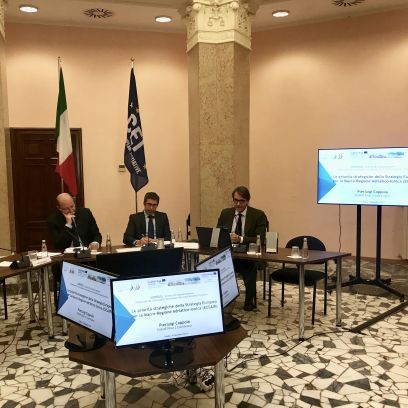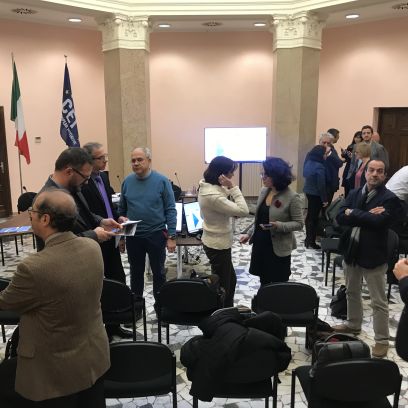On 4 December, the CEI Executive Secretariat, in its capacity as Lead Partner and GECT Euregio Senza Confini jointly hosted the ADRIPASS dissemination event in Trieste, Italy.
SG Roberto Antonione, in welcoming participants, he stressed the importance of the transport sector as one of the fundamental pillars on which CEI’s mission is based, i.e. on supporting European integration and sustainable development through cooperation between and among its Member States and with the European Union, international and regional organisations, as well as with other public or private institutions and non-governmental organisations.
Sandra Sodini, the director of the ‘GECT Euregio Senza Confini,’ stressed the importance of the integration process towards the Western Balkans. Speaking about the new incoming programme 2021-2027, she highlighted that it ought to be linked to the strategic programming of various funds such as EUSAIR and that it was necessary to find a strategic dimension between territorial and regional cooperation as well as national programming.
Within ADRIPASS, the analysis of the integrated multimodal transport in the Adriatic-Ionian region was performed with data collection of border-crossing points at corridor level, underlining main issues, and possible ICT solutions. Carlo Vaghi, scientific director of Fit Consulting s.r.l., illustrated the analysis of bottlenecks at the border crossing points in the ADRION area and the results of the study carried out in Croatia and Slovenia through desk and field researches. It highlighted physical, organisational, and IT problems with the relevant transport nodes. The Institute for Transport and Logistic Foundation (ITL), project partner of the ADRIPASS project, gave an insight into the Final Transnational action plan for transport facilitation in the ADRION region, a key milestone of the ADRIPASS project, based on the above- mentioned results: Giuseppe Luppino noted that a solution to barriers at border crossings was represented by the analysis and adoption of soft measures (ICT).
Seaports play a crucial role as the main gateway to transport networks, serving hinterland and catchment area going beyond their local and national borders. In the ADRIPASS project, five selected ports have been implementing specific actions to improve their efficiency: the port of Koper, Ploče, Bar, Durrës, and the region of Epirus in cooperation with the Port of Igoumenitsa. These ports mainly concentrate on developing or upgrading their Port Community Systems, which are the key ICT tools for the exchange of information between and among operators, clients, national customs, and other authorities.
Roberto Richter from the Port of Koper gave a detailed overview of all pilot actions performed in the ports. Port of Koper, Ploče, and Bar focused on the upgrading of their Port Community System. The Regional Unit of the Thesprotia/Region of Epirus developed a platform for the Port Community System flow analysis and an Augmented Reality virtual-navigation mobile app (now being tested until the end of 2019).
Alain Baron, interim director of the Transport Community Treaty presented the pre-investment study for setting up a Port Community System in the Port of Durres which defines all project components, including software and hardware requirements, the modules to be implemented according to the vessel, truck, and rail functionalities. He, in particular, underlined the importance of having more focused and coordinated strategies to collect tangible results from numerous projects. He raised the question of how such results, strategies plans could actually be implemented. He also mentioned the ADRIPASS project, as a concrete example of the transport system of tomorrow, a sustainable project that guarantees immediate results and should therefore be an example to follow and re-use within the framework of the policies gaining ground within the Transport Community Treaty.
Pierluigi Coppola, Pillar 2 coordinator for the EUSAIR – Adriatic-Ionian Euroregion, illustrated the strategic priorities of the European Strategy for the Adriatic-Ionian Euroregion and the added value of ADRIPASS. He underlined that ADRIPASS was directly linked to the EUSAIR strategy as it improved connectivity in the ADRION region and transport exchange with the rest of Europe. Thanks to the pilot actions and the approach used for the stakeholder engagement, ADRIPASS showed that its activities do not stop at analysis or studies. On this occasion he invited ADRIPASS as to the next annual EUSAIR forum focused on ports-hinterland connections. The Forum will be held in Belgrade in May 2020.
Barbara Di Piazza, Head of the ADRION Joint Secretariat emphasised that the primary mission of ADRION to support the macro-region was to act as a policy driver tool to encourage innovation and its management through network funding, cooperation agreements, strategies, action plans. She added that the projects financed in the transport sector were equally divided according to transport needs, in particular, the multimodality and the needs of maritime transport with those of the requirements related to land transport. She underlined the importance of the ADRIPASS results and informed participants about the first ADRION Capitalisation event that would take place in Rome on 11 December.
Other capitalisation events will be held to promote the transport axis through cross-linking, synergies, and clusters, starting from 2020.
For more info: dileno@cei.int

